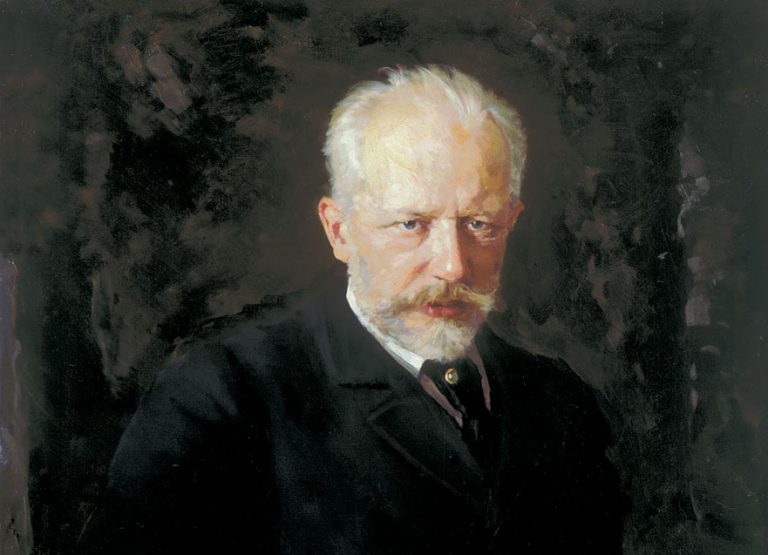It was a cool spring in 1840, when a boy was born into a traditional military family, in the dusty industrial town of Votkinsk, 1300 km from Russia’s capital, Moscow. At that time, Russia had no system for public education in music and there was little opportunity for a musical career. This boy received an education to become a civil servant, and a civil servant he became. His father, Ilya, was a lieutenant colonel and engineer in the Department of Mines; his grandfather was city governor of Glazor in Viatka; and his great-grandfather, Fyodor Chaika, served a distinguished service under Peter the Great in the Battle of Poltava in 1709.
Despite his non-musical background, or perhaps because of it, this boy, Peter Ilich Tchaikovsky (Пётр Ильйч Чайковский), showed a keen interest in music and would grow up to become one of the world’s greatest composers in the Romantic Era. His works exhibited impressive harmonies and colorful melodies. They include a violin concerto, a string sextet, 3 ballets, 3 piano concertos, 3 string quartets, 4 cantatas, 5 suites, 7 symphonies, 11 operas, 11 overtures, 20 choral works, and more than 100 songs and piano pieces.
Many of his pieces were renowned classics, such as Swan Lake Op. 20, The Sleeping Beauty Op. 66, Concerto No. 1 for Piano Op. 23, The Nutcracker Op. 71, and Roméo and Juliet Fantasy Overture.
Listen to Tchaikovsky’s Waltz from Act I of the Sleeping Beauty, Op. 66 – ShenYun Symphony Orchestra:
https://www.shenyuncreations.com/music/waltz-from-act-i-of-the-sleeping-beauty-op-66.html
Challenges and Setbacks
Success
You are now signed up for our newsletter
Success
Check your email to complete sign up
However, life as a musician was no smooth sailing for Tchaikovsky. Throughout his professional career, he was judged mercilessly, and many of his finest works were harshly criticized.
His only concerto for violin,Violin Concerto in D Major, Op. 35, was written in 1878. Tchaikovsky intended its premiere to be performed by Leopold Auer. But Auer refused, expressing doubts about its “intrinsic worth” and believing it to be “impractical.” This piece was only performed in 1881, a full three years later, by Adolph Brodsky in Vienna. And even then critics called it “long and pretentious,” “odorously Russian,” and one critic said “the violin was not played but beaten black and blue.”
If you listen to this piece of controversial violin concerto, performed by ShenYun Symphony Orchestra, you can judge for yourself. Did you hear the Russian tunes’ influence in this piece?
https://www.shenyuncreations.com/music/concertos/violin-concerto-in-d-major-op35-3rd-movement.html
Ironically, one of Tchaikovsky’s greatest achievements was his ability to integrate Russian Folk Tunes into Western musical traditions. In the words of Russian-born composer Igor Stravinsky, “Tchaikovsky drew unconsciously from the true, popular sources of our race.” Many claim that his music touches their hearts.
Frequently overlooked was Tchaikovsky’s courage in facing up to criticism and challenges, and his determination to overcome his personal weaknesses.Tchaikovsky continued writing music and experimenting with new techniques and ideas, despite harsh criticism against his style of composing.
The musician also suffered from irrational stage fright; he reportedly held his head while conducting, in fear that it would detach from his body. He conquered this fear in 1887, during the premiere of his opera Cherevichki. In 1891, he was invited to the US for the inauguration of Carnegie Hall in New York City. During his visit to the states, he successfully conducted before audiences in New York, Baltimore, and Philadelphia.
Tchaikovsky’s admirable fortitude and strength are intrinsic values that no money could buy. Perhaps, in understanding the difficulties he overcame to create music, we can appreciate his work to an even greater extent.














